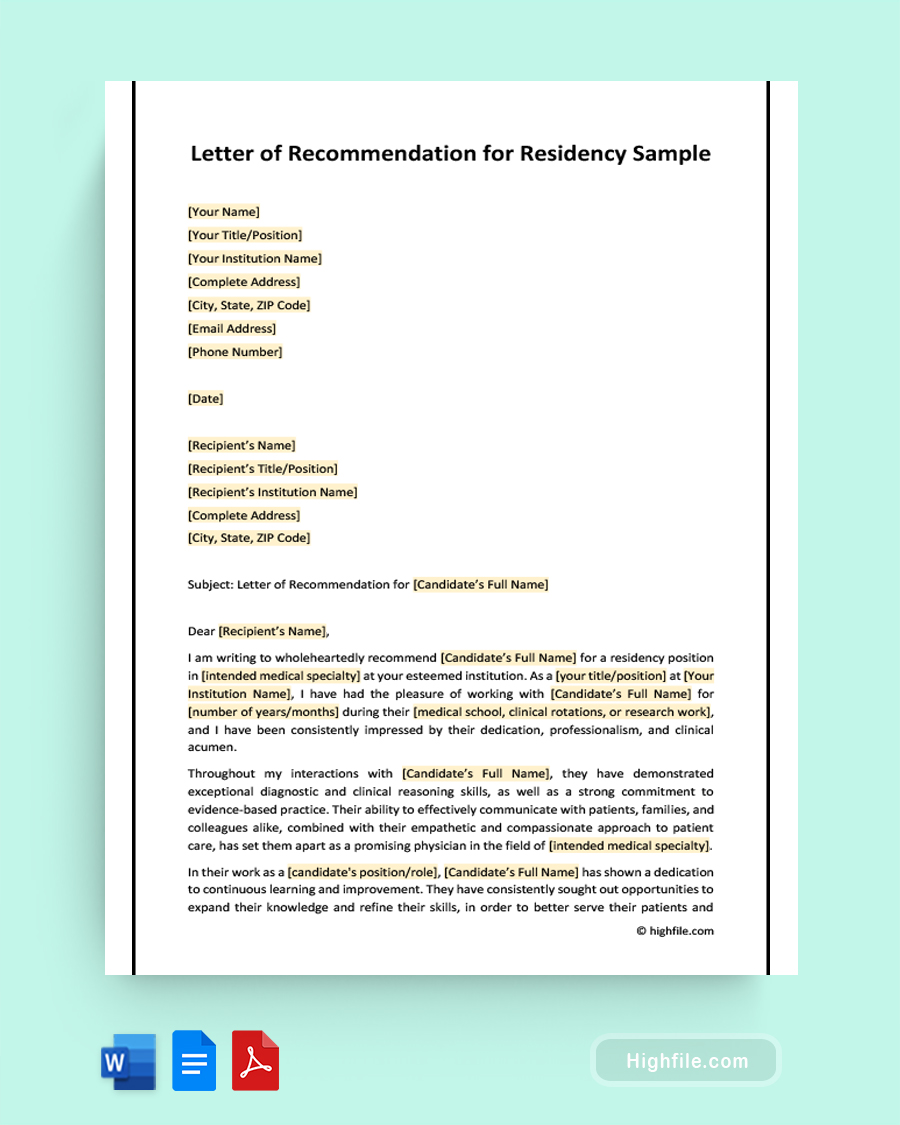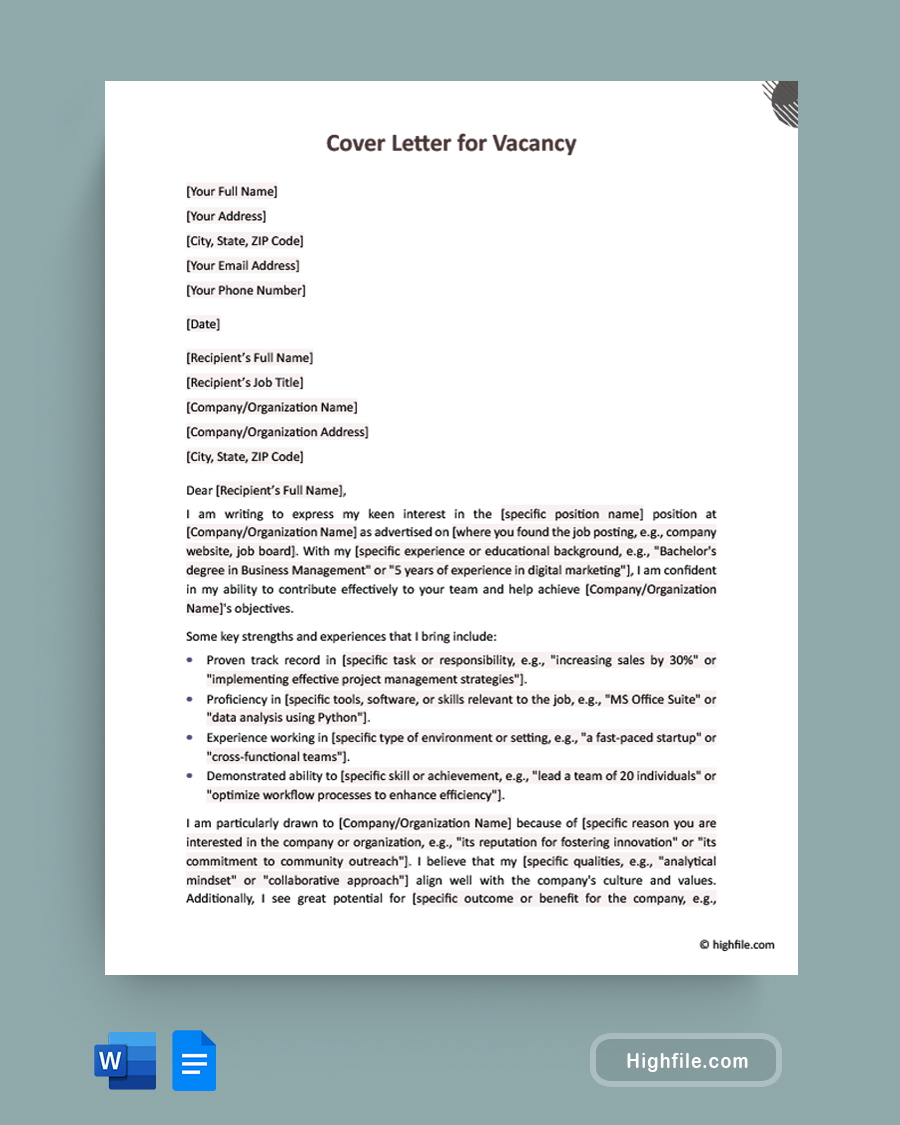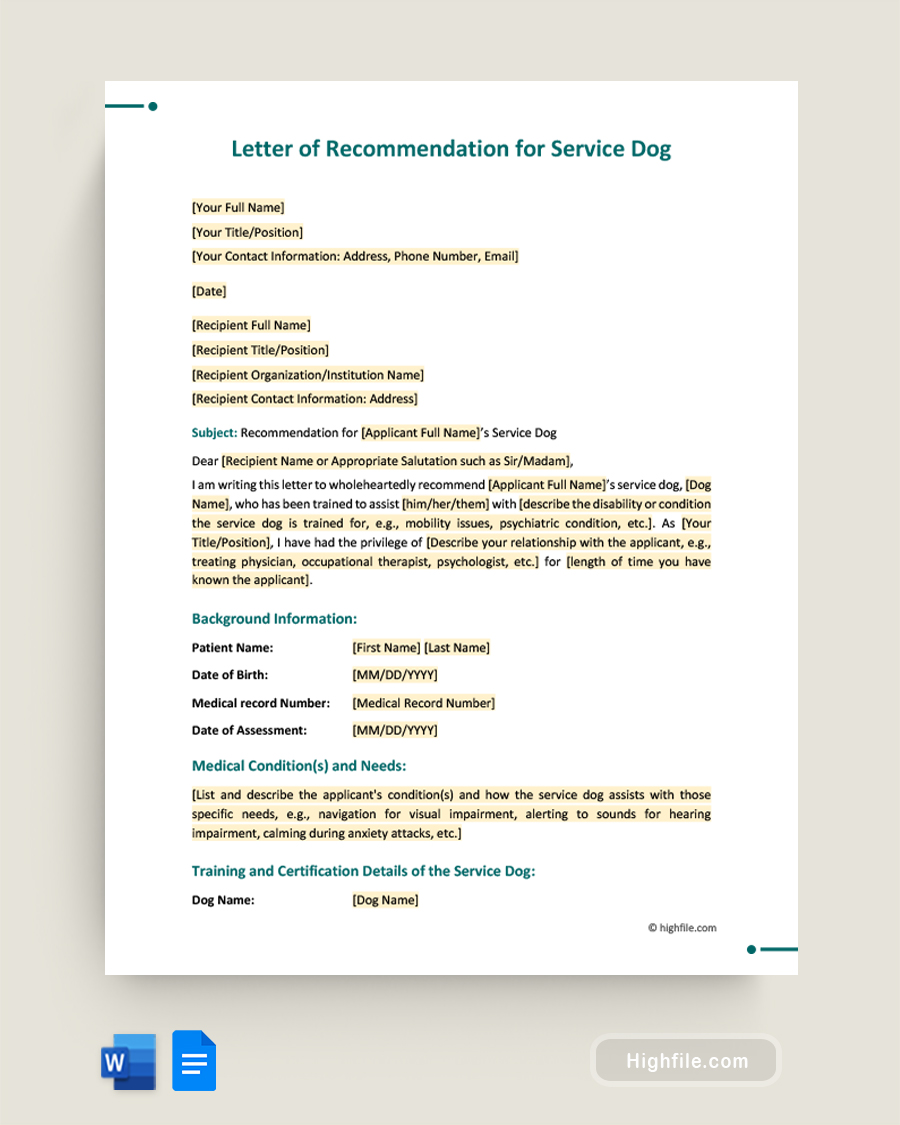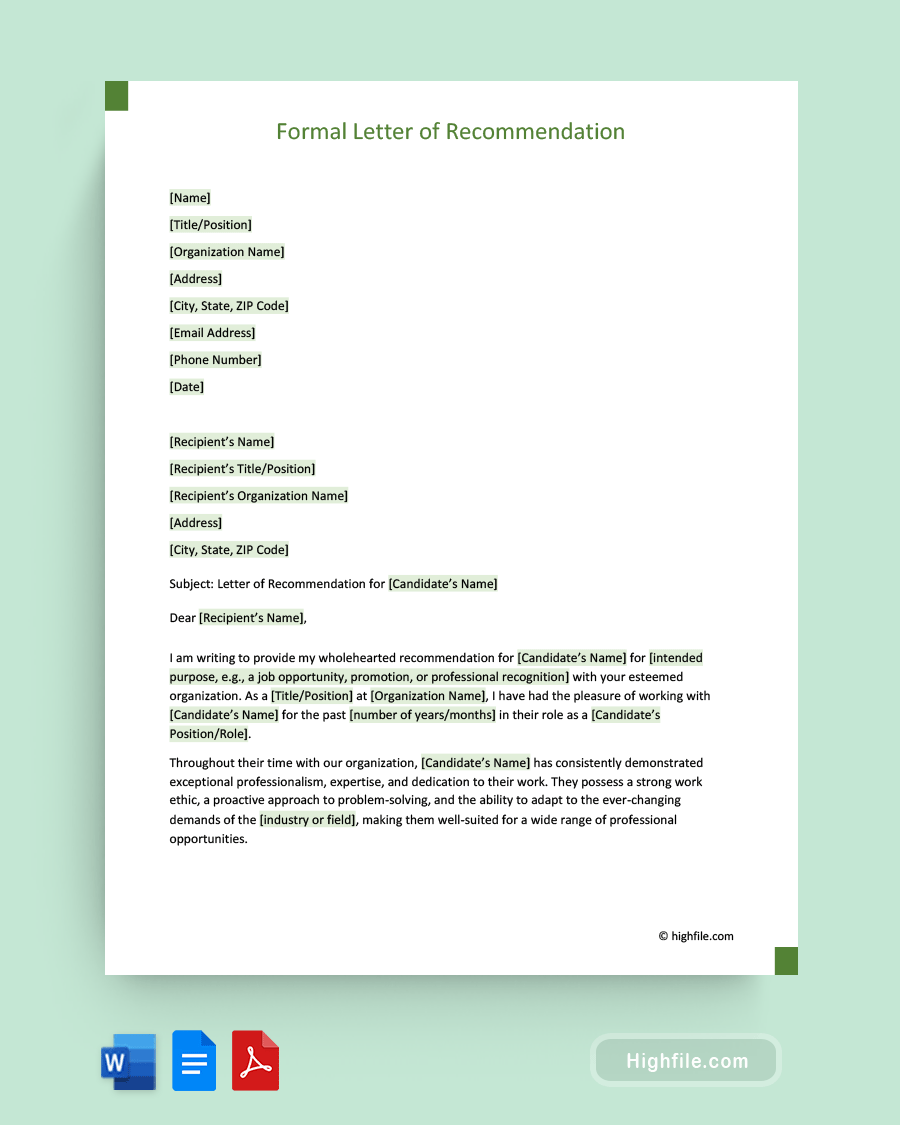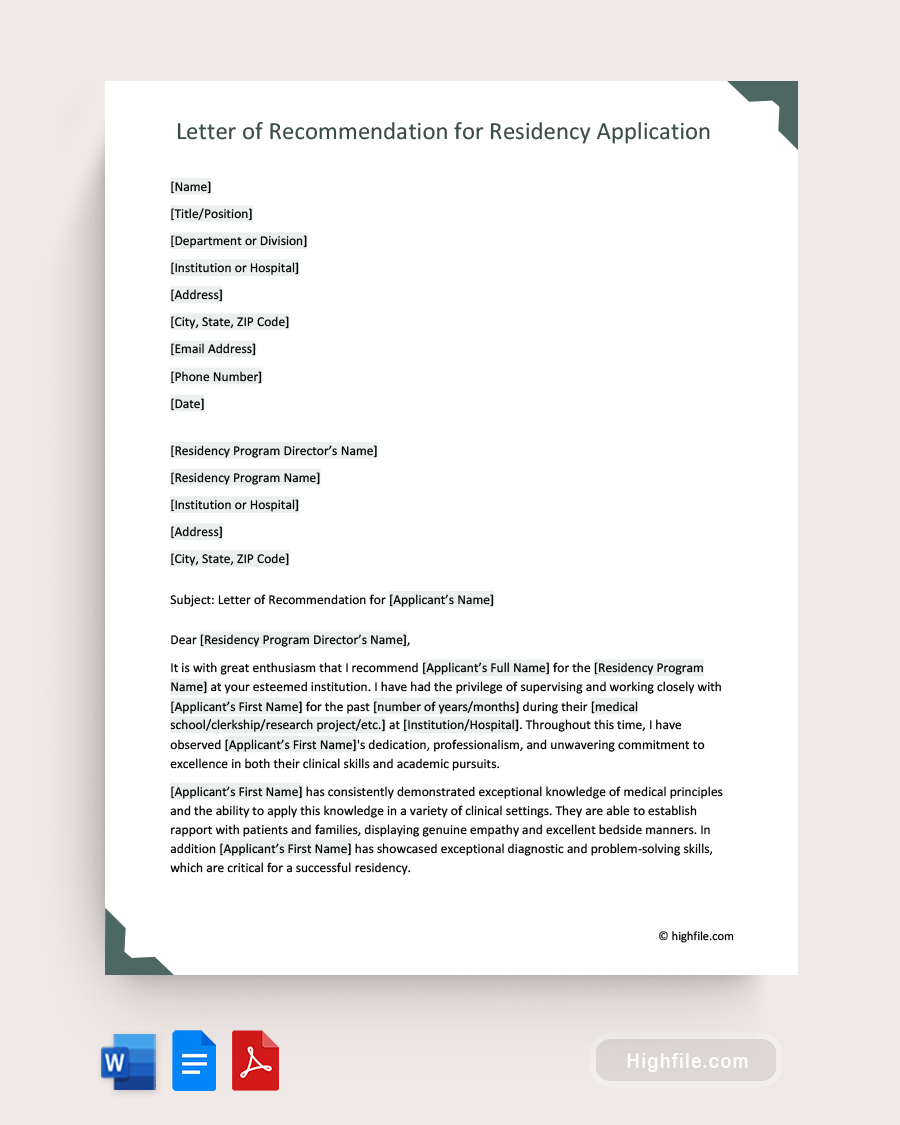A letter of recommendation for residency is a crucial component of the residency application process and can significantly impact a potential student. Letters of recommendation provide insights into a student’s clinical skills, character, and potential as a future physician. They are typically read and considered by residency program directors and can influence selection. A well-stated endorsement can help potential students stand out from the competition and increase their chances of acceptance into their desired residency program. Conversely, a weak or negative letter of recommendation can significantly harm a student’s chances of being accepted.
What Is a Letter of Recommendation for Residency?
A letter of recommendation for residency is a document written by someone who can attest to a medical student’s qualifications and potential as a future physician. These letters are typically written by faculty members, mentors, or physicians who have worked closely with the student and can speak to their clinical skills, work ethic, interpersonal skills, and other relevant qualities. Letters of recommendation are a critical component of the residency application process, as they provide insights into the student’s abilities and potential for success as a resident.
Why Is Letter of Recommendation for Residency Important?
A letter of recommendation for residency is a crucial component of a medical student’s application for a residency program. It provides valuable insights into their clinical skills, character, and potential as future physicians. A well-written letter offers a personalized assessment of students’ strengths and weaknesses, highlighting their unique qualities and accomplishments. By demonstrating that the student is a good fit for the residency program, the letter can help differentiate them from other applicants and compensate for weaker areas of their application.
Furthermore, a letter of recommendation may offer valuable context for any extenuating circumstances or challenges the student has faced. It can provide a source of validation and encouragement for the student during the stressful residency application process and establish professional connections and relationships for their future medical career. Ultimately, a letter of recommendation helps program directors gain a glimpse into the student’s potential as a future colleague and asset to the medical community.
Selecting the Right Referees for Your Residency Letter of Recommendation
When selecting referees for your residency letter of recommendation, consider the following factors:
- Close relationship/good knowledge of you: Choose people who know you well and can speak to your abilities, experience, and potential.
- Availability: Select referees with the time and availability to write a strong letter of recommendation within your application deadline.
- Writing skills: Seek skilled writers who can effectively articulate your strengths and potential.
- Clinical experience: Consider referees who have worked with you in a clinical setting and can speak to your skills and experience in the relevant specialty or field.
- Reputation: Choose those who have a good reputation in the field and are well-respected in their field.
- Relevant specialty: Select referees with experience and expertise in the specialty or field you are applying for, as they can speak to your fit and potential in that specific area.
Essential Elements of Letter of Recommendation for Residency
By including these essential elements in your letter of recommendation for residency, you can ensure that the letter is clear, concise, and effective in advocating for the applicant’s acceptance into the program.
- Letterhead: The letter should be on official letterhead, including the writer’s name, title, and institution.
- Writer Information: Include your name, title, institution, and contact information.
- Recipient Information: Include the name and address of the residency program or the individual who will receive the letter.
- Subject Line: The letter should have a clear and concise subject line that identifies the purpose of the letter.
- Formal Salutation: Address the letter to the appropriate individual or committee using a formal salutation such as “Dear Program Director” or “To Whom It May Concern.”
- Introductory Paragraph: The first paragraph should introduce the writer and their relationship to the applicant and endorse the applicant’s suitability for the residency program.
- Body Paragraphs: The body of the letter should consist of 2-3 paragraphs that highlight the applicant’s skills, experience, and personal qualities and how they make the applicant a good fit for the residency program.
- Summary and Closing Paragraph: The final paragraph should summarize the applicant’s strengths and potential and reiterate the writer’s endorsement of their suitability for the residency program.
- Writer Name and Signature: The letter should be signed by the writer and include their name, title, and institution name.
How to Write a Letter of Recommendation for Residency
Writing a letter of recommendation for residency can be challenging, as you are essentially vouching for a person’s suitability for a highly competitive and specialized program. Here are some steps to help you write an effective letter of recommendation for residency:
- Understand the program requirements: Before you start writing the letter, it’s essential to understand the specific requirements of the residency program. This will help you tailor your letter accordingly.
- Request information from the candidate: Ask the candidate to provide you with a copy of their resume, personal statement, and any other relevant materials.
- Start with an introduction: Begin your letter with a brief introduction, stating your name, title, and relationship to the candidate. Explain how you know the candidate and in what capacity you have worked with them.
- Highlight the candidate’s strengths: In the body of the letter, highlight the candidate’s strengths and accomplishments, focusing on the skills and qualities relevant to the residency program.
- Be specific and detailed: Be as specific and detailed as possible in your letter, providing concrete examples of the candidate’s skills, experience, and achievements.
- End with a strong conclusion: End your letter with a strong conclusion, summarizing your key points and reiterating your recommendation for the candidate. Provide your contact information and invite the program to contact you if they have any questions or need further information.
- Edit and proofread: Before you submit your letter, be sure to edit and proofread it carefully for grammar, spelling, and punctuation errors.
Tips for Requesting a Residency Letter of Recommendation
Here are some tips for requesting a residency letter of recommendation:
- Request letters from recommenders who can speak to your abilities and potential as a resident in the specific field or specialty you are applying for.
- Give them plenty of time to write the letter, ideally several weeks to a month before the application deadline.
- Provide your resume, personal statement, transcripts, and other relevant materials to help them write a strong letter.
- Ask if they feel comfortable writing a strong letter of recommendation and if they need any additional information to write the letter.
- Give clear instructions on submitting the letter, including any online portals or email addresses they need to use.
- Follow up to ensure they submit the letter before the deadline.
- Always thank your recommenders for their time and support.
FAQs
The number of letters of recommendation required for a residency application varies depending on the program and specialty. However, most programs typically require between 3 and 4 letters of recommendation. Some programs may require letters from specific individuals, such as the department chair. It is vital for applicants to review the requirements for each program carefully they are applying to and ensure that they are submitting the appropriate number and type of letters of recommendation.
If one of your referees fails to submit their letter of recommendation by the deadline, it is essential to follow up with them as soon as possible. If they cannot meet the deadline, you may need to consider finding a replacement referee or submitting your application with the letters that have been received. It is always a good idea to have a backup plan in case of unforeseen circumstances.
Here are some differences in the letter of recommendation requirements for international medical graduates:
ᐅ Letters of recommendation should come from physicians or faculty members familiar with the U.S. healthcare system and residency programs.
ᐅ At least one letter of recommendation should come from a U.S. physician who has supervised the international medical graduate during a clinical rotation in the United States.
ᐅ Letters of recommendation should be written in English, on official letterhead, and include the writer’s contact information.
ᐅ The letters should provide specific examples of the international medical graduate’s clinical abilities, work ethic, interpersonal skills, and other relevant qualities.
ᐅ International medical graduates may need to provide additional documentation to verify their medical education and training, such as transcripts, diplomas, and ECFMG certification.
ᐅ The requirements for letters of recommendation may vary depending on the specialty and program, so it is essential to review the specific requirements for each program carefully.
Key Points
A letter of recommendation for residency is a written document highlighting the qualifications and potential of a medical student as a future physician. It is usually composed by a faculty member, mentor, or physician who has worked closely with the student and can provide insight into their clinical abilities, work ethic, interpersonal skills, and other relevant qualities. Since letters of recommendation are a critical aspect of the residency application process, they can offer valuable information about the student’s capabilities and likelihood of succeeding as a resident.
